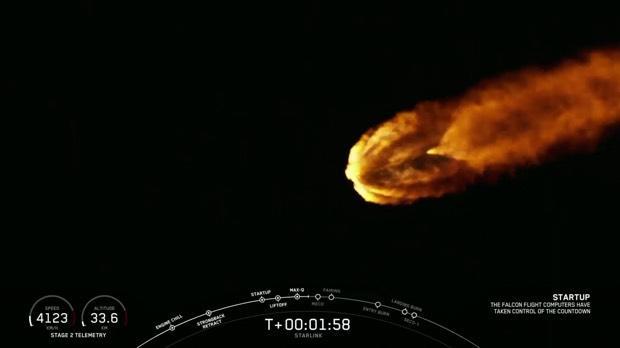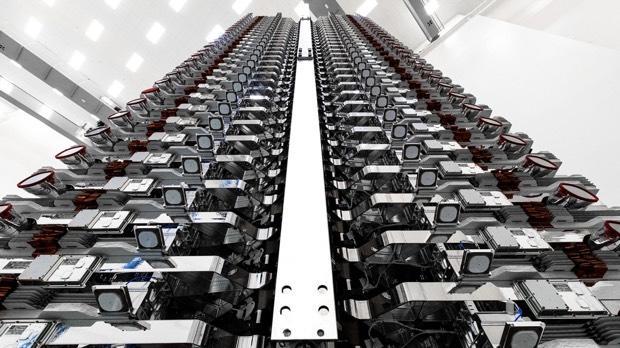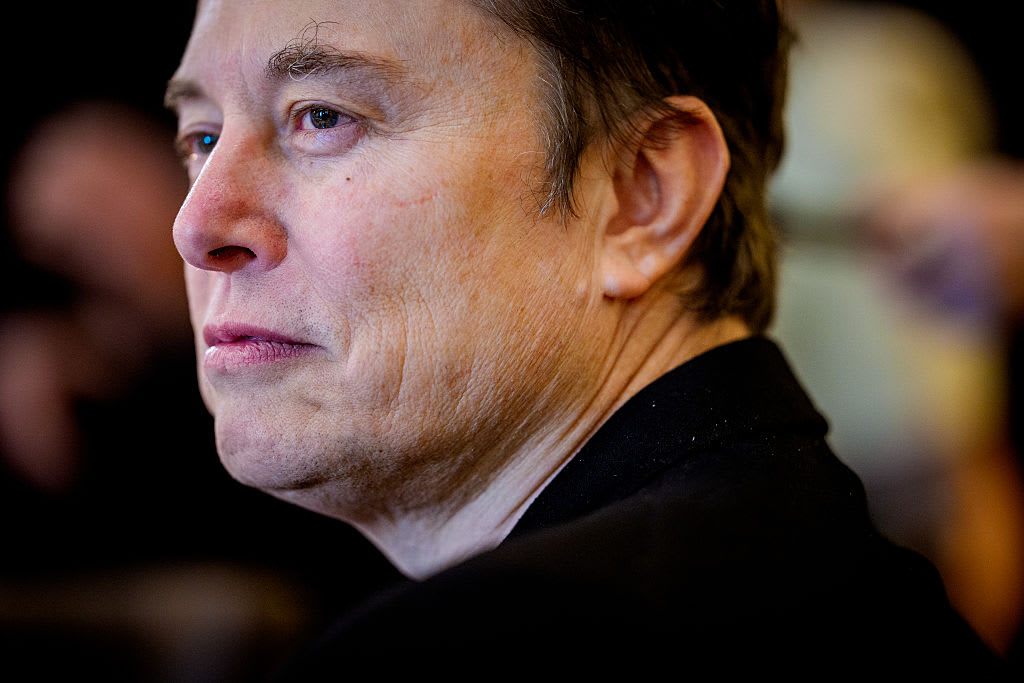SpaceX pins high hopes on Starlink internet satellites
Lighting up the night sky with a streak of fiery exhaust, a SpaceX Falcon 9 rocket thundered away from Cape Canaveral Thursday evening, boosting an initial batch of 60 Starlink internet relay satellites into orbit, the first of hundreds and possibly thousands planned to provide broadband access around the world.
Running a week late after back-to-back delays last week, the Falcon 9 roared to life and shot away from pad 40 at the Cape Canaveral Air Force Station at 10:30 p.m. ET, putting on a spectacular show for area residents and tourists.
The first stage propelled the multi-satellite payload out of the thick lower atmosphere then fell back into the atmosphere and flew itself to a pinpoint landing on an off-shore droneship, the "Of Course I Still Love You," stationed in the Atlantic Ocean nearly 400 miles northeast of Cape Canaveral.
The droneship was required because the 60-satellite payload, tipping the scales at some 30,000 pounds, marked the heaviest ever launched by a Falcon 9, and the rocket did not have enough left-over propellant to fly back to Cape Canaveral. The landing marked SpaceX's 40th successful booster recovery, and its 26th on a droneship.
The second stage, meanwhile, continued the ascent on its own with two planned engine firings required to reach the intended 273-mile-high orbit. The flight plan called for the satellites to be released from the spinning upper stage, somewhat like a deck of cards fanned out on a table, about an hour after launch.
SpaceX won regulatory approval to launch nearly 12,000 Starlink broadband relay stations in multiple orbital planes. Equipped with high-speed satellite-to-satellite communications links, the eventual network is designed to seamlessly hand off internet traffic as required to provide uninterrupted access.
SpaceX founder and chief designer Elon Musk told reporters before the initial launch try last week that the company "does not need anywhere near 10,000 satellites to be effective."
Another six launches of 60 or so Starlink satellites each will provide a "useful" network and another six launches after that will provide minimal global coverage. Musk said SpaceX will continue to expand the network after that to provide more complete coverage and to keep up with bandwidth demand.
The network is designed to provide "high-bandwidth, low-latency connectivity, ideally throughout the world," Musk said. "This would provide connectivity to people that don't have any connectivity today or where it's extremely expensive and unreliable."
The Starlink system also will serve "people who may have connectivity today in developed areas of the world but it's very expensive," he added. "This will provide a competitive option for them."
He said SpaceX plans to start selling the service "around the 400th satellite launch and then make sure our production and launch of satellites stays ahead of user demand."
The first 60 satellites do not include the cross links needed for the fastest data transmission and Musk warned that the sheer complexity of the system raised the possibility of initial problems.
"There is a lot of new technology here, and it's possible that some of these satellites may not work and, in fact, a small possibility that all the satellites will not work," he said. "We don't want to count anything until it's hatched, but these are, I think, a great design, and we've done everything we can to maximize the probability of success."
An initial attempt to launch the Starlink satellites on May 15 was called off due to high winds aloft. SpaceX recycled for another attempt the next day, but ended up standing down "to update satellite software and triple-check everything again," the company announced in a tweet. "Always want to do everything we can on the ground to maximize mission success."





